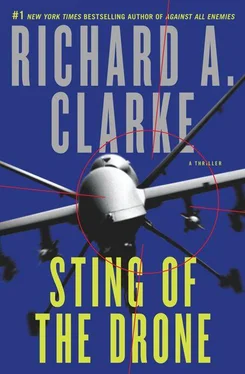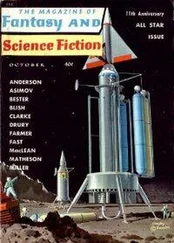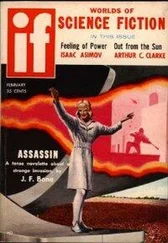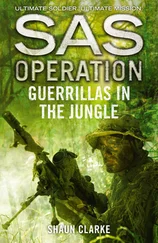“Rambler,” the Admiral began, reading aloud from his file, “is known to be planning the kidnapping or assassination of American military personnel acting as advisors to the Philippine Armed Forces engaged in counterinsurgency operations in Mindanao against an AQ affiliated offshoot of the indigenous Islamist militant movement.”
“And we briefed the civilian Defense Minister and the President’s Chief of Staff in Manila,” Nancy Schneidman added. “They concur. It was actually the Philippine military that first suggested we drone this guy. He’s holed up in a mountainous, jungle area where any attack force would just be slaughtered. Fact is this guy’s invulnerable except to drones.”
“See, this is exactly what I was talking about last time,” the Justice Department representative interjected. Ron Darden often felt like an outsider in the acronym punctuated interagency discussions. He was more at home in corporate boardrooms. “This guy didn’t bother our military so much, our guys weren’t so threatened by him that they nominated him. The local government asked us to go after him because they can’t do it without maybe losing a few guys in the operation. If he’s not really a threat to Americans, we should not be going after him.”
The Admiral removed his glasses, turned to stare at Darden, and then used his baritone voice to note, “We have solid intelligence that Rambler is planning to kidnap or assassinate American military personnel. And yes, we don’t want to, what did you say, lose some guys, to get him. But we also want to get him before he gets us. Okay?”
“These are U.S. troops we are talking about, at risk,” Nancy Schneidman added. “I don’t want to have to go to Dover one more time to welcome back a coffin or go to Arlington to meet one more widow if we don’t have to.”
Burrell looked at the Defense Under Secretary as he might have regarded a disappointing student in an honors seminar. “We don’t need to go there, Nancy. We have all been to Dover and Arlington too often. Everyone at this table has a right, indeed a duty, to question the nominations that come before us.” The room was silent for a moment.
“All right, then. Does any agency object to any of the Defense nominations?” Burrell asked.
“I’m okay with the guy in the Philippines, assuming we do the usual Pattern of Life thing to make sure there will be no collateral damage,” Watson, State’s Under Secretary, interjected. Behind her, in one of the “backbench” seats against the wall, her “plus one,” an Assistant Secretary of State, squirmed and frowned. He had clearly put her up to complaining about the Philippines target and now she had withdrawn her complaint. “But tell me why the guy in Yemen is a Defense Department target and not a CIA target. I thought the strikes in Yemen were supposed to be covert operations done by CIA.”
Admiral Harlan Johnston was ready for that question. Without consulting his notes, the Admiral replied, “Studebaker is known to be plotting an attack on the U.S. Embassy in Sana’a. That constitutes a direct threat to U.S. forces, our military mission in the embassy, as well as the Foreign Service and Other Government Agency personnel.”
“In that case, Harlan, fry his ass,” Liz Watson replied. Before she was in Turkey, Under Secretary Liz Watson had been ambassador to Yemen six years ago.
“All right then, shall we consider the six Defense nominations approved, subject to the rules of engagement on collateral damage?” Burrell asked. No one dissented. “Now, let’s move on to the Agency nominations, Todd and Seth.”
Todd Hill was the Director of the National Counter Terrorism Center, an independent intelligence organization that reported to the Director of National Intelligence. Seth Kaplan was the Deputy Director of CIA, which had its own large Counterterrorism Center. The White House budget staff had suggested merging the two groups, but Burrell was reluctant. Even though he also thought having two big Centers was ridiculous, he also knew that if there were another significant terrorist attack after the White House had “downsized” the counterterrorism intelligence staffs, the CIA and its friends on the Hill would blame the President. Better to waste a billion or so a year than to put the President at risk of appearing soft on terrorism.
In reality, the President was very far from soft on terrorism. He had given Burrell broad but extremely clear guidance: “Winston, I don’t want to micromanage this stuff. Just make sure we do not get attacked again. Do what you have to do. Minimize the negative press, no torture, and hold down the collateral damage to an acceptable level, but err on the side of killing the bad guys. If we fuck up trying to kill bad guys, I will be fine. If we fuck up because we didn’t kill the right bad guy and he then kills a bunch of Americans, particularly in the homeland, then I get in trouble. Understood?” Burrell had already understood that, intuitively.
Todd Hill from the National Counter Terrorism Center flashed a similar set of mug shots onto the screen, three rows of four. These faces had only code names attached to them on the graphic. They were named after fish.
“Flounder is the head of the Qazzani group’s European operations, drug distribution,” Hill began. “Not normally an offense that would get him on the Kill List, but we have a very sensitive source that has informed us that the Qazzanis have signed a contract with AQ to conduct attacks on targets in Europe, specifically U-Bahns, German subway trains.”
“Where is our attack to take place?” the Under Secretary of State asked.
“Probably Austria. We have a technical source that says Flounder is meeting with his subordinates in Vienna to go over the plans,” Seth Kaplan, the CIA number two explained.
“Jesus Christ, what is wrong with you people?” Under Secretary Watson responded. “Austria is a friendly state. They are cooperative on counterterrorism. You can’t go bombing Austria like it was 1944 again. It’s in the heart of Europe.”
“She has a point,” Winston Burrell observed. “Why can’t we just ask their Polizei to round these guys up when they are having their little meeting?”
“They don’t have a legal basis for arresting them. No evidence we can give them,” the CIA man, Seth Kaplan, said. “Our source is too sensitive to tell anyone about.”
“Including me?” Burrell asked.
“We can give you a little bit more detail in private, but this source is way too valuable to risk more broadly,” the CIA man replied.
“So, let me get this straight, we can’t have the Austrians arrest this guy because we can’t give them the evidence against him. So we have to kill him? What if we were able to kidnap him and bring him to the U.S. and indict him here,” Darden from Justice asked. “Under a 1992 Supreme Court ruling, the U.S. courts do not care how a person arrives before a U.S. court as long as he was not tortured along the way. It’s legal under U.S. law to kidnap him. It may violate Austrian law, but…”
Seth Kaplan looked uncomfortable. His staff at CIA had predicted this Kill Nomination would not go down well with Justice. “I appreciate your flexibility, Ron, but even if he were standing outside the White House fence, we could not arrest this guy. The evidence we have against him is far too sensitive to share with a U.S. judge or jury, let alone a defense attorney. So it’s actually a good thing he is not in the U.S., because I am not sure we could do anything to him here.”
“But because he is overseas, we can kill him?” Darden asked.
“Yes, of course,” Kaplan replied. “That is what we have been doing, using the President’s Covert Action authority under the Intelligence Act to remove terrorists from the battlefield in other countries. His Covert Action authority has no legal basis inside the U.S.”
Читать дальше












